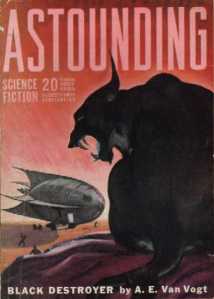Or,
the Many Literary Afterlives
of the Person from Porlock
Matilda told such Dreadful Lies,
It made one Gasp and Stretch one’s Eyes…
That Night a Fire did break out—
You should have heard Matilda Shout!
[But] every time she shouted ‘Fire!’
They only answered ‘Little Liar!’
And therefore when her Aunt returned,
Matilda, and the House, were Burned.—Hilaire Belloc, ‘Matilda: Who told Lies,
and was Burned to Death’
Forced to dissemble by a deadline-obsessed world, procrastinators tend to be an untrustworthy bunch. Consider Kafka, who complained bitterly that his job simply did not give him time to write. In fact his shift lasted only from 8.30am until 2.30pm, and he often enjoyed a four-hour afternoon nap (and writing endless letters about his lack of time). In the words of a disappointed Zadie Smith: ‘The truth was that he wasted time! The writer’s equivalent of the dater’s revelation: He’s just not that into you.’
In the radio documentary ‘Helping Hamlet,’ Douglas Adams’ literary agent similarly recalled the author’s constant excuses and outright lies. Procrastinators are ‘a bit like alcoholics or drug addicts,’ he declared, ‘they’re always hiding their behaviour.’
Persona non grata
The most celebrated literary excuse of all was proffered by notorious procrastinator Samuel Taylor Coleridge. Waking from an opium-tinged dream, he began scribbling down his great poem ‘Kubla Khan’. As the preface famously claims:
On awaking he appeared to himself to have a distinct recollection of the whole, and taking his pen, ink, and paper, instantly and eagerly wrote down the lines that are here preserved. At this moment he was unfortunately called out by a person on business from Porlock, and detained by him above an hour…
The rest of the poem ‘passed away like the images on the surface of a stream into which a stone had been cast’.
Readers have continued to debate whether the unwelcome visitor was real (Wordsworth? a drug dealer?), an artistic device to leave the work fragmentary, or a tiny little fib by a chronic procrastinator.
Xanadu may have stolen the thunder, from Citizen Kane to DC Comics, but the Person from Porlock has become quietly iconic in his own right. Neil Gaiman, Arthur Conan Doyle and Inspector Morse have toyed with him in passing, while for others he has become an important motif.
Genius, interrupted
The early-C20th Coleridge scholar John Livingston Lowes used to tell his classes: ‘If there is any man in the history of literature who should be hanged, drawn, and quartered, it is the man on business from Porlock.’ Coleridge, against the Romantic notion of individual agency, is the archetype of the artist visited by the Muse—and the Person has come to symbolize all that is antithetical to creativity. He is the anti-Muse.
It is no accident that the Person came ‘on business’, and he has often been taken to signify the grubby intrusions of commerce into literary life. For Australian poet A.D. Hope, Porlock embodied the babbling distractions of the mundane and vapid. A.N. Wilson called his early essay collection Penfriends from Porlock, complaining of the distractions of journalism and literary parties (J.L. Carr told him to move to Kettering).

Death: a visitor who comes without warning. Hans Holbein the Younger, ‘The Rich Man’ (woodcut, c. 1526)
In a more self-critical vein, Louis MacNeice used the concept for his last radio play, Persons from Porlock (broadcast 1963), about a painter and his alibis for failure. His art is interrupted by war, women, drink, and commercial selling-out—not unlike MacNeice himself, with radio plays themselves a meta-Porlockian distraction. Eventually Death, ‘a noble person from Porlock’, comes for the artist—and came for MacNeice himself only a few days after the broadcast.
Persons unknown
Science fiction writers also embraced S.T.C.’s image (Robert Heinlein: ‘Anne, you have just interrupted a profound thought. You hail from Porlock’), but reinvented him for the age of pulp. In Raymond F. Jones’ classic short story, published in Astounding Science Fiction (1947), the Person became a malevolent extraterrestrial conspiracy:
‘Don’t you see? It’s these Persons from Porlock who have made it impossible for me to complete my work… These Persons from Porlock—I wonder how many thousands of years of advancement they have cost the world!’
The alien Persons had indeed intervened to stop Coleridge from writing—because, of course, his drugged dream had ripped the veil from their secret colony.
A welcome break
But what if the Person came just in time? Stevie Smith cast doubt on Coleridge’s alibi: ‘As the truth is I think he was already stuck.’ Unlike her procrastinating predecessor, she welcomed a visit. This is the Person re-envisaged as a depressive death wish:
I am hungry to be interrupted
Forever and ever amen
O Person from Porlock come quickly
And bring my thoughts to an end.
Others have embraced the Person in less morbid fashion. The experience of artistic creation has been depicted as divine: Orhan Pamuk’s Snow, for example, compares the narrator’s troublingly spiritual creative experience to that of an unPorlocked Coleridge. It was a short step from this (and from sci-fi pulp fiction) to reinvent the Person himself as godly—thus Welsh poet (and Anglican priest) R.S. Thomas called him ‘The eternal, nameless caller at the door’.
For Vladimir Nabokov, the Person recurs as a supernatural being of sorts. In ‘The Vane Sisters’, the quack librarian Porlock hints at the story’s eventual paranormal literary solution; and the novel Bend Sinister (1947) was provisionally entitled ‘A Person from Porlock’—with Nabokov himself the Person, ‘an anthropomorphic deity impersonated by me’. The figure last appears in Lolita as a taunt in a guestbook: ‘A. Person, Porlock, England.’
Convenient accidents
‘Tomorrow I’ll sing a sweeter song,’ S.T.C. concluded in (mis)quoted Greek, ‘but the to-morrow is yet to come.’ It never came. Not published for another two decades, ‘Kubla Khan’ would always be presented as a fragment of an unrecoverable whole.
There is something strangely potent about unfinished works, with their suggestion of eternal promise wrecked by death, or about works sadly lost altogether. They are the X on the tea-stained treasure map, the Ark of the Covenant, and have fuelled both academic speculation and Dan Brown’s career. Kurt Vonnegut even sketched a ‘Two-thirds of a Masterpiece is More than Enough’ rule. Hamlet, for example, ought to finish after the murder of Polonius: ‘Got it, got it, got it. All freeze. Bring in a person from Porlock. Lower the curtain. The play is done.’
But some interrupted works may never have existed at all. Truman Capote and Ralph Ellison were both perfectionist procrastinators who failed to publish for decades after their masterpieces, In Cold Blood (1965-6) and Invisible Man (1952). Both constantly sought excuses and scapegoats for their lack of productivity. For Capote it was a vindictive ex-lover who had stolen the manuscript. For Ellison it was his soon-to-be wife (YOUR SILENCE PREVENTING WORK, he telegrammed) and later a convenient fire. Both men’s biographers agree that these works may never have existed.
This, too, is interruption as divine salvation, deus ex machina—it’s the ‘dog ate my homework’ of literary procrastination.
Saving Porlock
It took an unrepentant procrastinator to fully rehabilitate the Person’s reputation. Paranormal influence on S.T.C. appeared again in Douglas Adams’ sci-fi detective mystery Dirk Gently’s Holistic Detective Agency (1987). The novel is full of passing time, taking in a sleepy Oxbridge college full of sinecures, silent dons, and a ‘Professor of Chronology’ appointed some two centuries earlier by a clock-obsessed George III.
With the apocalypse nigh at the hands of an alien ghost, the eponymous detective must save the world with a crucial interruption in Somerset:
‘Mr. Samuel Coleridge? I was just passing by, on my way from Porlock, you understand… I do hope I haven’t kept you from anything important—’
Want to join the discussion? See our Call for Papers.






Reblogged this on electric masala and commented:
The travel book done and dusted, here’s a brand new piece from our latest side project. Sign up for the event on 2 July, and send papers!
I have been surfing online more than 4 hours today,
yet I never found any interesting article like yours. It is
pretty worth enough for me. Personally, if all webmasters and bloggers made good content as you did, the web
will be much more useful than ever before.
Hi, Neat post. There’s an issue along with your site in internet explorer, would test this?
IE still is the market leader and a good portion of people will omit your excellent writing due to this problem.
Thankfulness to my father who stated to me on the topic of this web site, this weblog is genuinely remarkable.
Hello, I enkoy reading all of your article post. I like too write a
littloe comment to support you.
I like the helpful information you provide for your articles.
I will bookmark your weblog and test once more right here frequently.
I am relatively certain I will learn many new stuff proper right here!
Best of luck for the next!
Fantastic blog! Do you have any tips for aspiring writers?
I’m hoping to start my own website soon but I’m a little lost on everything.
Would you propose starting with a free platform like WordPress
or go for a paid option? There are so many choices out there that I’m totally overwhelmed ..
Any tips? Thank you!
I wanted to thank yoou for this great read!! I certainly enjoyed every bitt of it.
I have you saved as a favorite to look at new things you post…
Hi, I would like to subscribe for this weblog to take latest updates, so where can i do it please help.
Glad you’re enjoying! If you keep scrolling down, there’s a link that says “Follow” after the summary of our Twitter account on the right hand side. (We’d give you the link, but we’re not the most tech-savvy pair).
Hope this helps—just let us know if not.